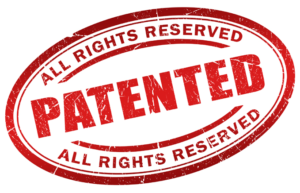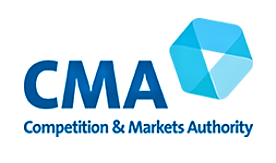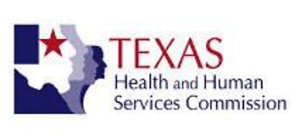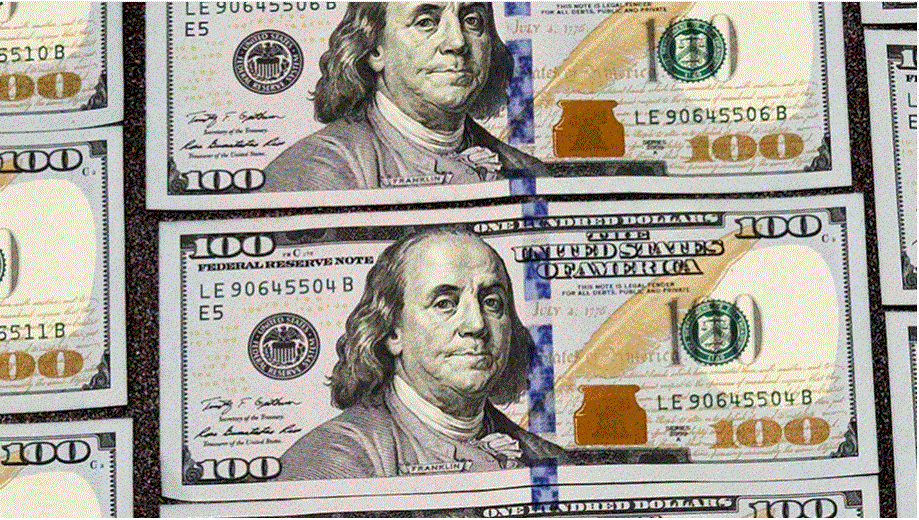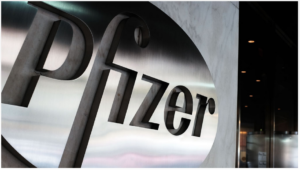- Big Pharma faces $26.5B in losses this year as next big patent cliff looms, analyst says (fiercepharma.com)
With 18 branded drugs on the line, patent losses this year could jeopardize $26.5 billion in annual sales from Big Pharma, projected to be the biggest fall-off until at least 2025…Which companies are at risk? Roche, GlaxoSmithKline, Eli Lilly, Pfizer and AstraZeneca to name a few...This year's potential patent expiry damage is much more daunting than 2015 and 2016, when only four and nine meds from companies...lost exclusivity, respectively...Anticipated expirations for 2017 include Roche’s Rituxan, GSK’s Advair, Eli Lilly’s Humalog and Cialis, AstraZeneca’s Byetta, Pfizer’s Viagra and Merck’s Vytorin...the 2017 patent losses and associated sales declines will "continue to pressure growth" in the industry...about 45% of the sales at risk looking forward are for biologics, which will face biosimilar competition rather than generics..."erosion rates will be slower," but still "unpredictable.
- With billions at stake, will biosims finally make a mark in the U.S. in 2017? (fiercepharma.com)
Biosimilars have already taken hold in Europe, with Celltrion's Remicade copy, for one, wreaking havoc on the branded med's sales. Whether they'll finally make their mark in the U.S., though, remains to be seen—and 2017 could be the year we find out...Over the next several years, billions of dollars in legacy drug sales could be ceded to an oncoming and rising wave of biosimilars, with much of the action set to kick off in 2017. All told, 7 of biopharma’s top 10 best-selling drugs next year face a near-term biosim threat, meaning fortunes will be made or lost as the field continues to take shape...Fundamental legal questions also remain surrounding biosims in the U.S...whether the biosimilar pathway will survive...a potential Affordable Care Act repeal...the Supreme Court will likely review the “patent dance clauses which are currently optional.” That could potentially throw a wrench in future launches...
- Can You Guess Which Big Pharma Has Raised Its Drug Prices 5 Times Since June 2014? (fool.com)
This is probably far from breaking news -- or in any way shocking -- but prescription drug prices are soaring...According to an analysis conducted by healthcare data company Truveris...prescription drug inflation topped 10% in 2015, spearheaded by an average price increase in branded pharmaceuticals of 14.77%...But what if I told you that a well-known Big Pharma has been regularly hiking drug prices in plain view and no one seems to be taking notice? In fact, this drug giant has increased its list prices...five times since June 2014. This company's average list price increases are as follows:
- June 2014: an average increase of 7.4%
- January 2015: an average increase of 8.8%
- June 2015: an average increase of 8.5%
- January 2016: an average increase of 10.4%
- June 2016: an average increase of 8.8%
...this works out to a cumulative increase over a two-year span of approximately 52% in list prices...Can you name this pharma giant?
- Pfizer ready to shell out $14B for most-wanted M&A target Medivation: FT (fiercepharma.com)Pfizer boosts cancer drug pipeline with $14 billion Medivation deal (reuters.com)
The Medivation hunt may be all but over. Pfizer is close to striking an agreement to buy the...biotech in a deal worth about $14 billion...If Pfizer and Medivation do finalize a deal, it would wrap up a months-long buyout race that pulled in much of Big Pharma and Big Biotech along the way. With its blockbuster oncology med Xtandi (enzalutamide) ready to add to a buyer’s sales, plus a much-anticipated late-stage cancer candidate and a pipeline of other prospects, Medivation has been a sought-after prize in an otherwise slow summer for biopharma M&A....
- Pfizer, Flynn appeal against UK regulator’s £89.4m fine for epilepsy drug price hike (manufacturing.pharmaceutical-business-review.com)
Pfizer and Flynn Pharma have appealed against the £89.4m ($111m) fine imposed by the UK Competition and Markets Authority (CMA) for charging excessive and unfair prices for an anti-epilepsy drug...Pfizer has been fined £84.2m($104m) and Flynn Pharma £5.2m ($6.4) after they increased prices by as much as 2,600% in September 2012...The companies have separately filed appeals in the Competition Appeal Tribunal...Both Pfizer and Flynn accused the UK watchdog of ignoring market realities when it ruled that the price Flynn paid to acquire the anti-epilepsy drug from Pfizer and the price it charged from the National Health Service (NHS) were both excessive...The CMA had stated that owing to the unreasonable price increase of the critical drug, the NHS’ annual expenditure to buy the phenytoin sodium capsules from Flynn had shot up to around £50m ($62m) in 2013 from the 2012 figure of £2m ($2.4).
- Pfizer sues Texas agency over releasing Medicaid data to lawmakers (statnews.com)
In the latest struggle over pharmaceutical costs, Pfizer has filed a lawsuit against a Texas state agency for releasing Medicaid rebate data to a pair of state lawmakers, claiming the move violated federal and state laws that protect its confidential information...By releasing the data, Pfizer argued the Texas Health and Human Services Commission compromised “valuable and commercially sensitive trade secrets” that could hurt its ability to compete with rivals, according to the lawsuit…The drug maker...contended that disclosure can lead to “uniform pricing” that could harm Medicaid. How so? Pfizer maintained that, if other large purchasers were to know about — and then demand — the same prices offered to the Texas Medicaid program, the company “would not be able to provide such pricing and rebates to every entity due to their unique differences in size, market and particular needs.”...the cat is out of the bag, Pfizer asked the court for a temporary restraining order and a preliminary injunction to prevent the Texas Health and Human Services Commission from releasing data in response to any additional requests...This is likely to be a closely watched case, given the tremendous interest in pharmaceutical costs and the mystery surrounding rebates.
- Big Pharma Spends Millions to Keep Prices High for California Agencies (thestreet.com)
California's attempt to curb drug prices, Proposition 61, could cause drug companies including Merck, Pfizer and Johnson & Johnson to raise prices, according to analysts, and the companies are already taken steps to block the bill's passage…According to analyst David Larsen...the major drug companies could choose to extend the prices they offer to the Department of Veterans Affairs to the state, while offsetting the discounts by raising the prices of other drugs...drug companies could risk a domino effect of having to discount other states...manufacturers could raise the prices they offer to the VA, which was threatened in 1992 when Congress considered doing something similar on a federal level...While drug companies stand to benefit politically from opposing this bill, they likely won't see an impact on their bottom lines if Proposition 61 passes - at least at first...Prop 61 addresses such a narrow portion of the California population - state agencies and non MCO Medi-Cal, the revenue and earnings exposure for the distributors and PBMs is minimal...likely that California's legislature will realize that companies can raise prices elsewhere, and will ultimately repeal the ballot measure.
- The top 10 drug launches of 2017 (fiercepharma.com)
- After an unusually slow year for new drug approvals—the FDA greenlighted just 22 meds in 2016—it remains to be seen whether drugmakers can do much better in 2017. One thing’s for sure, though: No matter what total the industry tallies up this year, the crop will bring some would-be blockbusters and market disrupters.
At the top of the list...is Ocrevus (ocrelizumab), the Roche multiple sclerosis drug that’s promising to shake things up in more ways than one...
Sanofi and Regeneron hot-shot Dupixent (dupilumab) could make a big splash in severe atopic dermatitis, assuming payers don’t get in the companies’ way.
Ditto for Biogen's Spinraza, which in December became the first FDA-approved product to treat spinal muscular atrophy—but whose high sticker could raise eyebrows at a time when U.S. President Donald Trump is threatening pricing action.
Tesaro and Neurocrine are looking for their first-ever FDA approvals, in breast cancer pill niraparib and tardive dyskinesia therapy Ingrezza, respectively.
...Kite Pharma is aiming to get the first-ever CAR-T cancer drug to market, with a candidate, KTE-C19, that the oncology community will be watching closely as the next big thing in immunotherapies.
Novartis’ ribociclib...which aims to challenge Pfizer’s Ibrance in the CDK 4/6 breast cancer space.
...semaglutide, Novo Nordisk's weekly GLP-1 drug, a would-be successor to the company's blockbuster Victoza…
- After an unusually slow year for new drug approvals—the FDA greenlighted just 22 meds in 2016—it remains to be seen whether drugmakers can do much better in 2017. One thing’s for sure, though: No matter what total the industry tallies up this year, the crop will bring some would-be blockbusters and market disrupters.
- Pfizer’s Lyrica patent appeal fails in U.K., endangering bid to protect $5B med (fiercepharma.com)
Pfizer’s divide-and-conquer approach to Lyrica in the U.K. just hit a wall. The Court of Appeal upheld a ruling that struck down key patent claims on Lyrica and cleared Actavis’ generic of infringing it...The...case centered on a “carve-out” approval for Actavis’ Lyrica generic, a type of regulatory nod that branded drugmakers see as a threat...drugmakers want to prolong their monopoly access to patients, and they use follow-up patents to extend their protection past the time when IP coverage expires on the original compounds...some recent “skinny” regulatory nods--from the FDA as well as international regulatory agencies--that clear generics only for particular indications have complicated those efforts, because they give generics makers an entreé onto the market while so-called method-of-use patents remain in effect...The patent at issue in this case covered Lyrica’s use as a pain treatment; the patent on pregabalin itself, the active ingredient...had already expired. These days, Lyrica is used more often for pain than for its original indication as a seizure drug...The company hopes to now take its fight to the U.K. Supreme Court...Pfizer maintains its strong belief in the validity and importance...of the patent…
- Halloween Already? Big Pharma Marketers Try Terror Tactics to Scare Up Sales (adage.com)
Grandma as a menacing wolf. Parents whose carelessness leads to cancer in their kids. A teenager hospitalized after sharing a seemingly innocent kiss. Halloween may still be over a month away, but Big Pharma is already out to scare consumers...In recent months, several fear-instilling, often ominous commercials for medical devices, products and vaccines from drugmakers including Pfizer, GlaxoSmithKline and Mylan are airing in fairly heavy rotation…If you increase an individual's feeling that they're susceptible to a threat, and increase the perceived severity of that threat, people are more likely to take action...a trend with companies, especially ones with injectable drugs and vaccines, which also have big price increases, is to scare people into buying their product or getting their vaccine...Fear can be motivating until it's demotivating...There's a threshold at which we turn off and say, 'That's not me, that's someone else—my brain can't handle this level of risk and information.'...

